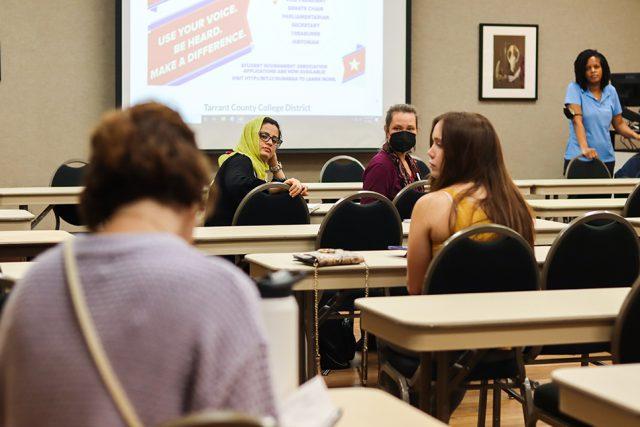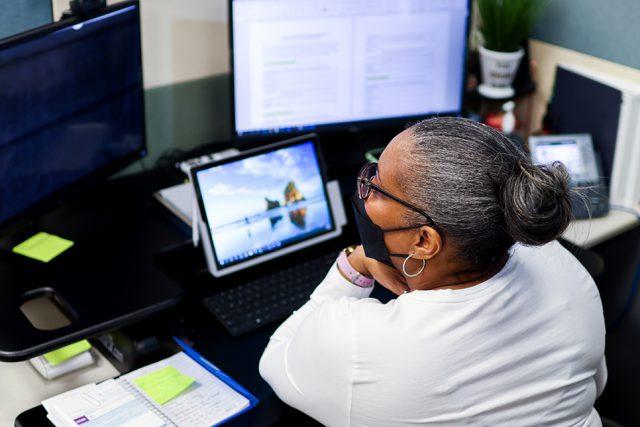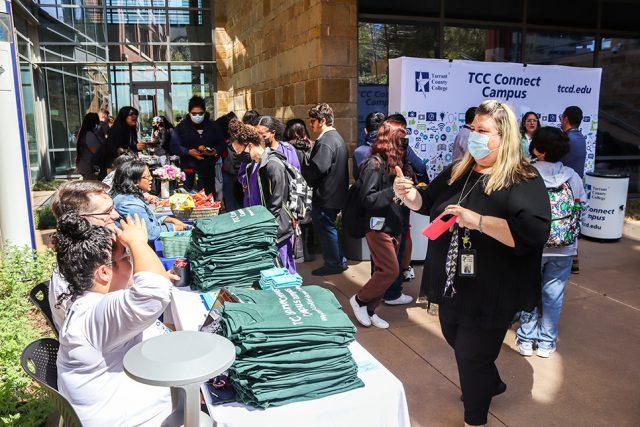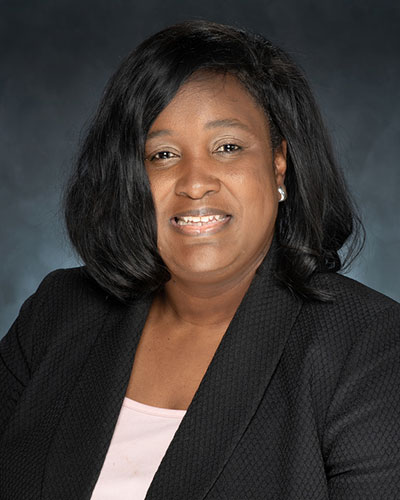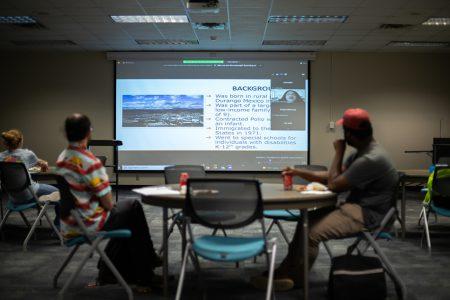
virtual presentation during the event Not Always a Valley of Tears April 5.
Joel Solis/The Collegian
AUSTIN FOLKERTSMA
senior editor
austin.folkertsma@my.tccd.edu
TCC hosted an event for author and motivational speaker Pascuala Herrera via zoom, where she shared stories and experiences from her newest book, “Not Always A Valley Of Tears,” April 5.
This event is the first collaboration between Student Accessibility Resources and the Intercultural Network offices across the district.
“Through this event, we would like our audience to know that although there will be difficult moments in our life, beautiful miracles will still happen today,” Connect Intercultural Network coordinator Qing Ricks said. “We hope the students can be inspired by her presentation, find their motivation/purpose and make some connections from this event.”
NE SAR coordinator Kim Eason said she’s inspired by Pascuala Herrera.
“She made the impossible possible,” Eason said. “Despite having polio and being a female Latina immigrant growing up in poverty, she found her purpose as an educator specializing in accessible learning for college students with disabilities.”
Eason hopes students know their paths aren’t predetermined by how other people categorize them.
Herrera was born in a rural town with a population of about 250 people to a family of nine children, her being number eight.
She was born without a disability, but at nine months, she contracted polio.
“We lived in a community with a lot of low-income Latinos, and we were trying to get me to go to school because, in Mexico, I wasn’t able to go to school,” she said. “I was told that because of my disability, I couldn’t go to my neighborhood school.”
Herrera had to go to a school for children with disabilities.
“It was very much a therapeutic school,” she said. “They had therapists, they had doctors and attendants to help out, so my whole education was really in special education.”
She said she didn’t want to attend school because she wanted to be with her brothers and sisters.
“Having lived pre-[Americans with Disabilities Act] and post-ADA, I could tell you how fortunate students with disabilities are now in being a mainstream part of your neighborhood, to be a part of the colleges versus being segregated,” she said.
For a long time, she felt held down because she didn’t get the education that students with disabilities get now.
“However, besides not being challenged enough in my education, I learned skills like how to speak for myself, be independent and make the best out of any situation,” she said.
Herrara said her disability has always been at the forefront of her identity. Other identities she has, such as being a Latina and an immigrant, have also played a role in her identity, but being disabled has always come first.
She was an activist for the rights of people with disabilities. She met her now-husband at one of the protests for the ADA that was signed in 1991.
After graduating high school, she attended DePaul University, where she earned a master’s degree in reading and learning disabilities.
Upon graduating from DePaul, she was hired almost immediately to work at Harper Community College and was a colleague of NE President Kenya Ayers-Palmore.
Herrera retired from teaching in June 2020.
“I kinda joke around and say when I retired, the world fell apart, and that’s why we went on the pandemic.”
Her life was not what she expected after retirement. She said she wanted to travel and spend time with friends, but that was impossible because of the pandemic.
She never imagined herself becoming an author.
“It wasn’t in my plans, but the interesting thing about life is that life leads you where you need to go,” she said. “In writing my memoir, it’s really a tribute to my parents, especially my mom.”

























